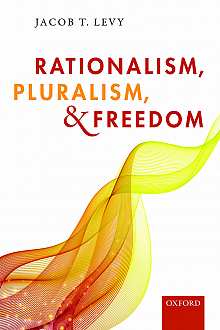Liberty Matters
Competition and Cartelization

David quite rightly notes that busybodies and men of system aren't the worst-case scenarios for power-seekers, naming a generic (I think overbroadly generic) category of plunderers and predators. The first thing to note is that the category is generic; "busybodies" and "men of system" were never meant to describe worst cases, but rather importantly distinctive cases. The selection of busybodies and men of system into office in (respectively) intermediate groups and the central state stamps the exercise of power in each with a distinctive character, one that affects how we should think about even the best-case scenarios. It is among the reasons (I discuss others in chapter three) why we should neither imagine states as justice-dispensing machines nor imagine intermediate groups as consensual emanations of their members' wills. Importantly, neither the busybody nor the man of system is an entirely malevolent archetype. (They do not represent Hayek's "worst.") They are obnoxious extensions of often-beneficial social impulses, turned into sometimes-serious problems by institutional contexts that afford them too much power.
Plunder and predation seem to me somewhat different. While there are unusually greedy people, unusually bloodthirsty people, and people unusually driven to dominate, plunder and predation are only sometimes closely linked to such people, and such people are not necessarily the most effective at those tasks. As David notes, really large-scale plunder and predation are never the work of one man alone--and the ability to carry them out on a large scale over a sustained period requires the ability to credibly commit to sharing the proceeds of plunder across the dominant groups. The one monstrous ruler may commit true horror for years or decades without teaching us much about what stable long-term domination and exploitation really look like. The coalitions of elites that make up governing structures are better able to carry on their plunder without genocidal sociopaths.
But that shouldn't lead us to forget that the boring, nonmonstrous elites will seek to cartelize, if left free to do so. David asks us to imagine intermediate groups constrained by rights of exit, by competition from other groups, and by the existence of interstices among them. (Here see my previous discussion of civil society with Gary, as well as my discussion in chapter three of how intergroup competition can sometimes worsen power relations within groups.) David suggests that, without a state, the predators will be stuck ruling over such constrained groups, with no wider stage on which to act. My two questions are:
- Without a state, what restrains the group elites from choosing cartelization over competition, and devoting their efforts to stamping out the interstices, the better to enable them all to prey on their captive members?
- If a state is really the only thing that allows elites to cartelize in such a fashion, why would they not create one?
As I've said in previous entries, I'm non-anarchist (not anti-, but non-) because I think states are social facts that emerge for non-decisionistic reasons and that aren't susceptible of being decided away. But if we imagine that they could be decided away, how shall we then imagine that the process is unidirectional? States undoubtedly do serve as highly efficient tools for cartels of elites to use to plunder whole populations. That's not all they do, but it is among the things that they do. Once that piece of social technology has been discovered, I don't think it will be forgotten. And so, if we pay attention only to the plunderers (and understand that this is not the name of some rare monstrous personality type), I see no reason to expect that David's vision would be sustainable: either they will find sufficient opportunities to dominate and plunder in the stateless order, or they will not, and they will create a state.
A theory of freedom of association is not where we will find the answers as to how to avoid rule by a Pol Pot. (Neither, I think, is any theory that elides the differences between Pol Pot and Johnson or Nixon--vicious though both of the latter were.) I'm not going to suddenly produce an answer to that kind of question. But a theory of freedom of association might help us take seriously the existence of domineering elites of more than one kind, and at more than one level. It can thus help us see that vertical contestation--between groups and states--can provide some space for freedom, and that purely horizontal competition among groups is probably no stable guarantee of doing any better.
Copyright and Fair Use Statement
“Liberty Matters” is the copyright of Liberty Fund, Inc. This material is put on line to further the educational goals of Liberty Fund, Inc. These essays and responses may be quoted and otherwise used under “fair use” provisions for educational and academic purposes. To reprint these essays in course booklets requires the prior permission of Liberty Fund, Inc. Please contact oll@libertyfund.org if you have any questions.